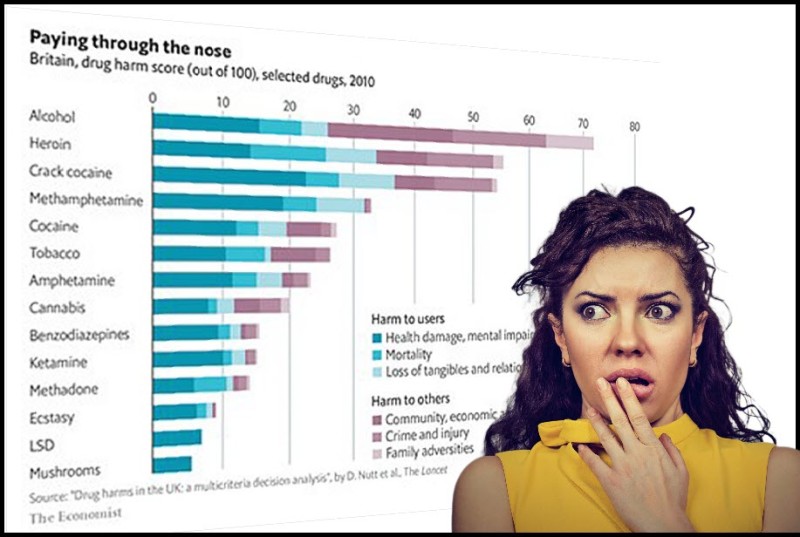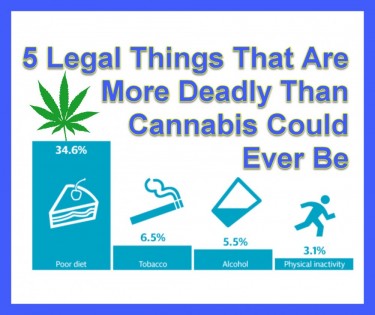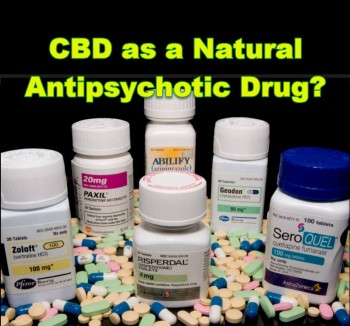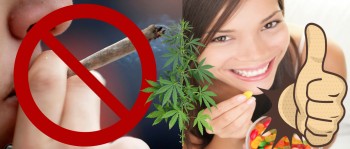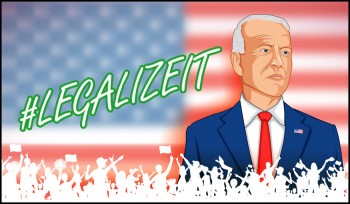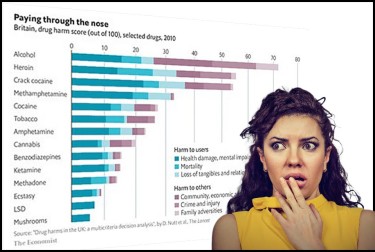
Since the dawn of civilization, humans have had an insatiable appetite for altering their consciousness. From the ancient Sumerians writing about beer to the shamanic use of psychedelics in the Americas, our relationship with drugs is as old as humanity itself. It's woven so deeply into the fabric of human society that virtually every major religion and legal system has attempted to regulate, control, or outright ban various substances.
For the past century, governments worldwide have been chasing the pipe dream of a "drug-free society." The War on Drugs, launched in the 1970s, promised to rid the world of the scourge of drug abuse. Yet, here we are fifty years later, with more drugs, more potent substances, and more problems than ever before.
History has taught us an undeniable lesson: prohibition doesn't work. As long as there's demand, supply will always find a way. The only real achievements of prohibition have been to enrich criminal organizations and grant governments unprecedented powers over their citizens' personal choices. From Al Capone during alcohol prohibition to modern-day cartels, we've seen this story play out time and time again.
But what if I told you that the most dangerous drug isn't what you think it is? If you stopped random people on the street and asked them to name the most harmful substance, you'd likely hear responses like "heroin," "crack," or "meth." However, a fascinating study by Professor David Nutt and his colleagues reveals a far different reality.
Today, we'll dive into this groundbreaking research that challenged conventional wisdom about drug dangers. We'll explore why current drug scheduling might be completely backward, and how legalization, rather than prohibition, could actually make drug use safer through proper regulation and quality control.
The results might surprise you – and they certainly surprised many in the scientific and political communities when they were first published. Let's take a closer look at what the data really tells us about drug dangers in our society.
Who is David Nutt?
When it comes to drug research and policy, few names carry as much weight as Professor David Nutt. As a neuropsychopharmacologist specializing in the research of drugs affecting the brain, including addiction, anxiety, and sleep, Nutt has dedicated his career to understanding how various substances impact human health and society.
His credentials are impeccable: Fellow of the Royal College of Physicians, Royal College of Psychiatrists, and the Academy of Medical Sciences. He's held prestigious positions at Imperial College London, the University of Bristol, and the University of Oxford. As a former chairman of the UK's Advisory Council on the Misuse of Drugs (ACMD), he was literally the government's top drug advisor – until controversy struck.
In 2009, Nutt was famously dismissed from his position by Home Secretary Alan Johnson for speaking scientific truth to power. His offense? Publishing research showing that alcohol and tobacco were more harmful than many illegal drugs, including LSD, ecstasy, and cannabis. Johnson claimed Nutt had "crossed the line from science to policy," essentially admitting that evidence-based research took a backseat to political agendas.
The dismissal sparked outrage in the scientific community. Multiple ACMD members resigned in protest, including Dr. Les King and Marion Walker. Even the government's own Chief Scientific Adviser, John Beddington, sided with Nutt, stating "the scientific evidence is absolutely clear cut. I would agree with it."
Rather than back down, Nutt doubled down on his commitment to evidence-based drug policy by founding Drug Science, an independent scientific committee providing objective information about drugs. His dedication to scientific truth earned him the 2013 John Maddox Prize for "promoting sound science and evidence on a matter of public interest, whilst facing difficulty or hostility in doing so."
The controversy highlighted a crucial point: drug policy should be based on scientific evidence, not political convenience. As Nutt himself wrote in The Lancet: "The repeated claims by Gordon Brown's government that it had scientific evidence that trumped that of the ACMD and the acknowledgment that it was only interested in scientific evidence that supported its political aims was a cynical misuse of scientific evidence."
Needless to say, David Nutt is someone who knows his stuff. His groundbreaking research into drug harms provides us with an unbiased, evidence-based assessment of how different substances affect both individuals and society. When we look at his findings, we're not seeing political spin or moral panic – we're seeing cold, hard data analyzed by one of the world's foremost experts in the field.
Now, let's take a look at what his research actually revealed about drug dangers in our society...
A Closer Look at his Findings…
Professor Nutt's groundbreaking study, published in The Lancet, aimed to create an evidence-based ranking of drug harms in the UK. Unlike previous approaches that relied on political assumptions or moral panic, Nutt and his team developed a comprehensive multicriteria decision analysis (MCDA) to evaluate 20 different drugs based on 16 specific harm criteria.
The methodology was rigorous. Nine criteria focused on direct harm to the user, including mortality, physical damage, and addiction potential. The remaining seven examined broader societal impacts like crime, economic costs, and family disruption. Each criterion was weighted to reflect its relative importance, allowing for a nuanced understanding of both personal and societal harms.
The results were shocking – and flew in the face of conventional drug classification systems. Alcohol emerged as the most harmful drug overall, scoring a staggering 72 out of 100 points. This was significantly higher than heroin (55) and crack cocaine (54), two substances generally considered among the most dangerous. When looking specifically at harm to others, alcohol's dominance was even more pronounced, scoring nearly three times higher than crack cocaine.
What makes this finding particularly striking is the legal status of these substances. Alcohol, despite being the most harmful drug by a significant margin, remains widely available and culturally celebrated. Meanwhile, less harmful substances like psychedelics (LSD scored 7, mushrooms scored 6) are classified as Schedule I drugs, carrying severe legal penalties for possession or use.
Nutt's recommendations based on these findings were clear: our drug laws need serious revision. The current classification system, he argued, bears little relationship to actual drug harms. Instead of basing drug policy on scientific evidence, we've created a system that criminalizes less harmful substances while normalizing the use of more dangerous ones.
Perhaps most importantly, Nutt's research highlighted that harm reduction strategies should focus more on alcohol than currently illegal drugs. As he pointed out, if we're genuinely interested in reducing drug-related harm to society, we should be more concerned about Friday night at the pub than about someone taking mushrooms in their living room.
The implications are profound. We've built entire legal and social frameworks around drug classifications that don't reflect reality. Billions are spent enforcing laws against substances that, according to the data, pose relatively minimal risks to society. Meanwhile, alcohol – a drug that causes massive social harm through violence, health impacts, and family disruption – remains virtually unquestioned as a cornerstone of social life.
Now, with this understanding of Professor Nutt's work, we must ask ourselves: isn't it time to renegotiate our societal relationship with mind-altering substances? Can we justify maintaining the current system when it's so clearly at odds with scientific evidence? As we'll explore next, perhaps the path forward lies not in doubling down on failed prohibition policies, but in developing a more rational, evidence-based approach to drug regulation...
We are Drugs
There's a profound irony in our society's relationship with drugs: one of the substances classified as Schedule I – DMT – is produced naturally in our own bodies. As Terence McKenna famously quipped, "Everybody's holding." This endogenous psychedelic, dubbed "the spirit molecule," isn't just some recreational chemical – recent research suggests it may be fundamental to our perception of reality itself. Rather than simply causing hallucinations, DMT might actually help stabilize our baseline consciousness, with additional doses allowing us to "break through" these perceptual barriers.
But this isn't about DMT specifically. It's about the absurdity of criminalizing a substance our bodies naturally produce while celebrating alcohol – a drug that, according to Professor Nutt's research, causes more societal harm than heroin or crack cocaine. You can't watch a football game without being bombarded by beer commercials, yet people sit in prison cells for possessing substances that are demonstrably less harmful.
As we approach another presidential election, both candidates have suddenly discovered their support for cannabis reform, despite long histories of opposition. But why stop at cannabis? Nutt's research shows that psychedelics like LSD and psilocybin mushrooms pose even less risk to society than marijuana. We've spent half a century fighting to legalize one relatively benign plant while maintaining prohibition on substances that could potentially revolutionize mental health treatment.
The evidence is clear: legalization works. Even without full nationwide legalization, cannabis use among youth has declined in states with legal markets. Why? Because regulated markets require ID checks, while drug dealers don't care about age verification. Legal markets also ensure product quality, generate tax revenue, and create legitimate jobs – all while undermining criminal enterprises.
When Professor Nutt presented scientific evidence challenging the established narrative about drug dangers, he wasn't celebrated for his rigorous research – he was fired. This tells us everything we need to know about the real motivations behind drug prohibition. It was never about public health or safety; it was about control and profit.
The pharmaceutical industry has effectively captured the entire drug market, turning prohibition into their private monopoly. They've spent decades funding politicians, shaping media narratives, and influencing medical education. The result? A system where dangerous but profitable drugs are pushed through legal channels while safer alternatives remain criminalized.
The true danger isn't any particular substance – it's the unholy alliance between Big Pharma and government power. Perhaps Professor Nutt's harm assessment missed the most addictive and destructive drug of all: Power. It's the one substance corporate executives and politicians can't seem to get enough of, and their addiction has shaped drug policy for generations.
It's time to admit that the "war on drugs" was never about protecting public health – it was about protecting profits and power. The science is clear. The evidence is overwhelming. The only question that remains is: how many more lives must be ruined before we finally embrace a rational, evidence-based approach to drug policy?
